Chinese wanderers take the Southeast Asian hippy trail to happiness
It was no coincidence that Lonely Planet’s second ever publication was Southeast Asia on a Shoestring (1975). The region has been synonymous with independent travel since its sun-soaked charms called out to a generation following the 1960s overland hippie trail.
Alex Garland’s novel The Beach (1996) revived the mystique of Southeast Asia for Generation X, before Generation Y carried the low-budget travel baton into the new millennium, pressing dirt roads into a neat circuit signposted by strategically located banana-smoothie shacks. But change was inevitable.
By 2017, China was Southeast Asia’s biggest tourism market — more than 10.5 million Chinese visited Thailand alone the following year — and the region adapted quickly to Chinese mores.
Southeast Asia had been a place of trade or refuge for the Chinese since imperial times, but the newly moneyed masses were not looking to escape dynastic turmoil. They were seeking leisure, which often implied buses, banquets and big hotels.
Yet even more quickly than their numbers rose, they have vanished, the Covid-19 pandemic having made rusty graveyards of tour bus terminals and silenced bustling restaurants.
The tourist masses may have gone, but still wandering Southeast Asia are independent Chinese travellers; free spirits travelling on a shoestring budget as the hippie pioneers once did.
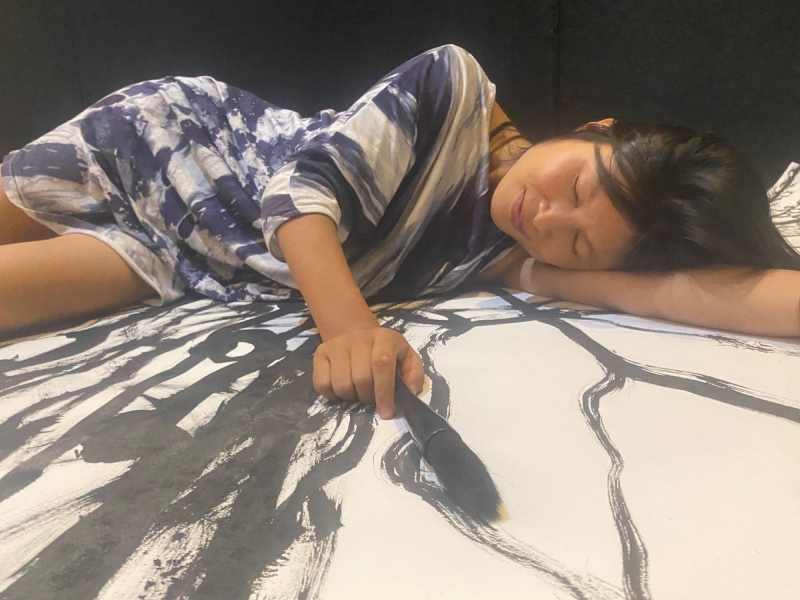
Adaptable and frugal, they have found ways to survive during a time of unprecedented challenges, opting to ride out the Covid-19 storm rather than return to face strict quarantine protocols and oppressive regulations at home.
Among them is Funky Sun Rongfang, a child of the 1980s reform era who grew up in Changde, a city in Hunan, central China, near its border with Hubei province.
After graduating from the Beijing Institute of Fashion Technology, Sun spent time in Yunnan in southwest China, Tibet and Hong Kong’s Lamma Island before getting her first taste of lemongrass when she travelled through Vietnam in 2009.
She was still living in Beijing, though, when an Indonesian island began seducing her away.
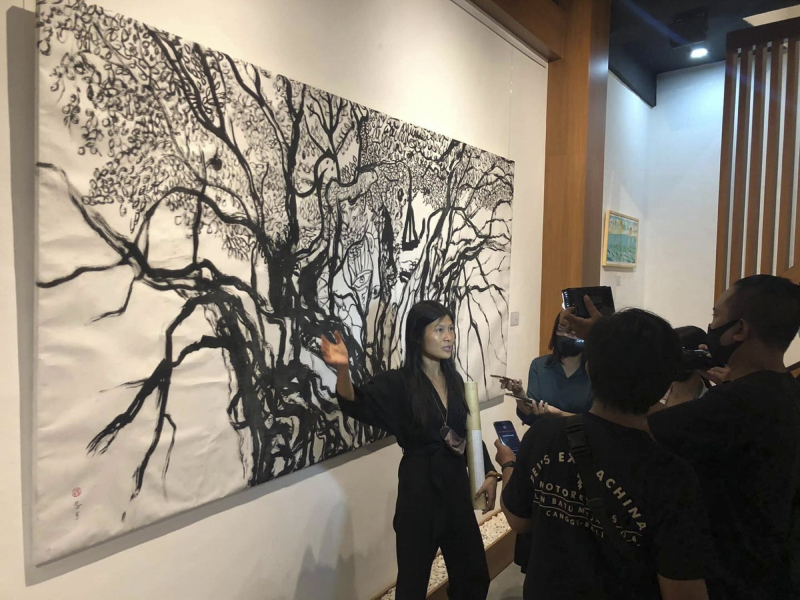 “I first came to Bali in 2016 to attend a fashion week,” she says. She returned three years later, leaving a frigid Beijing winter behind. “I wanted to see in the New Year in Bali,” she says from Ubud, a town popular with artists where she’s currently living. “I’ve been here ever since.”
“I first came to Bali in 2016 to attend a fashion week,” she says. She returned three years later, leaving a frigid Beijing winter behind. “I wanted to see in the New Year in Bali,” she says from Ubud, a town popular with artists where she’s currently living. “I’ve been here ever since.”
When Covid-19 broke out not far from her hometown, Sun was concerned. “I called my mum regularly to make sure she was all right,” she says. As the pandemic reached her bamboo-framed door, flights were cancelled and Indonesia went into a cycle of lockdowns. Sun was effectively stranded.
Adapting to life as an island castaway, Sun found lodgings in a rice-paddy-flanked art studio belonging to Made Ada Gallery, where she used her time creatively. “I’ve been able to focus on my digital drawings. With my tablet, the world is my studio.”
In May 2021, Bali’s ZEN1 Gallery exhibited her work, which is informed by the hardships of living in a disease-ravaged world.
Sun sees positives in the slowdown of human activity. “Nature has had time to recover, you can see it in Bali, the planet is healing,” she says.
Community spirit on the island has flourished, she says. “Sometimes money got a bit tight. A friend showed me that the water spinach that grows outside can be cooked and eaten. That’s one of the reasons I love Bali; people are so optimistic and willing to help out.
“Of course, the economy has been really hurt,” she says. “But we’ve come together and supported one another; you know, tomorrow, we’re making Chinese dumplings.”
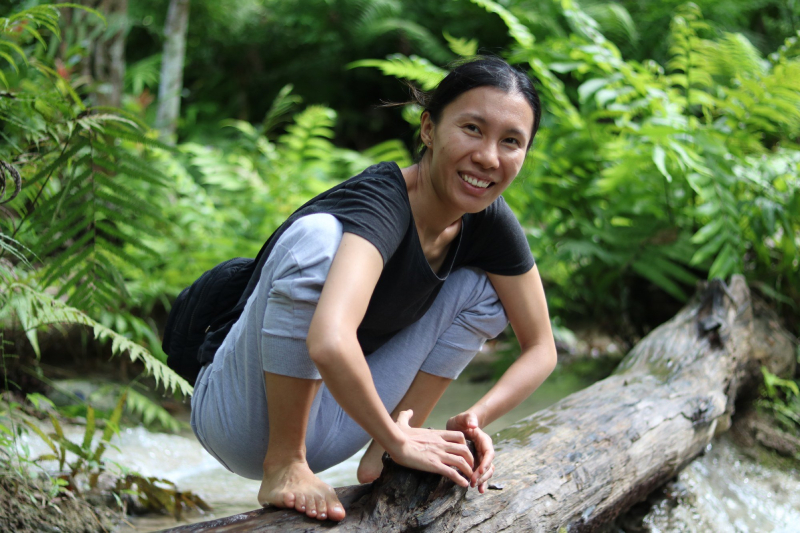
Also preparing for the Lunar New Year thousands of kilometres from home is Lucia Qiu Licen, from Shanghai, who is weighing up whether to remain in Chiang Mai or make her way south to see in the Year of the Tiger on one of Thailand’s picturesque islands.
“Maybe I’ll go to Koh Samui,” she says wistfully, eyeing the horizon from her apartment balcony.
Qiu’s road from suburban Shanghai to northern Thailand has been a winding one.
In 2014 and newly graduated from university, Qiu set out to find work overseas. In Dubai, she did jobs in real estate and human resources. “I was there about six months in total,” she says. Having earned enough money, she then travelled around Sri Lanka.
Qiu has since visited more than 20 countries and worked in a variety of fields, including two years as a freelance travel photographer in Turkey. “I left after the attempted coup in 2016,” she explains. “The security situation wasn’t good.”
Before the pandemic, Qiu worked as a guest relations officer in an upmarket Maldives holiday resort.
“I really love the Maldives but it’s made up of lots of small islands with a hotel on each one. Only certain jobs will enable you to move around so I decided to go to India, to become a yoga teacher.”
Qiu set off to Rishikesh by way of Chiang Mai, where she intended to enjoy some downtime before beginning the next chapter of her journey.
“In Thailand, I met a digital nomad from Europe and we started dating. I decided to stick around for him.”
Forced to leave temporarily when her tourist visa expired, Qiu was in Shanghai preparing to return to Thailand when Covid-19 struck.
“When I eventually flew back in March 2020, there were only two people on the plane. Thailand began imposing restrictions about two days after I touched down,” Qiu adds.
Like Sun, Qiu feels she’s benefited from living through a pandemic in Southeast Asia. “Accommodation is good quality and cheap, Wi-fi is fast, which has enabled me to find work teaching Chinese, interpreting and selling things online. Plus the natural environment is really pleasant; you can just rent a motorbike and head out into the hills.
“Of course, I, like local people, have been affected, as I usually work in the tourist sector. But with less people around, the air quality has visibly improved; there are no traffic jams. You don’t have to queue up in restaurants, everything is much more convenient,” she says.
That is a sentiment echoed by Edward Yu Senyuan, who has spent most of the pandemic on the Malaysian holiday island of Langkawi.

“From around 2pm to 5pm every day the crowds would just grow and grow on Cenang Beach,” he recalls of island life before the pandemic. “You’d have to wait in line to eat at any of the good restaurants along Cenang Road.”
A native of Chengdu, southwest China, Yu had been working in IT support at a high school before relocating to Southeast Asia.
“Each year was the same, I couldn’t see any future. It was meaningless,” he says of his past life. “A teacher told me about this beautiful island in Malaysia.”
Yu took the plunge. He found work in a travel company and went scuba diving in his spare time. Langkawi was incredibly vibrant until the pandemic closed everything down, he says.
“When the last tour group left for Kunming in February, 2020, we thought we’d have a few quiet months then business would return.”
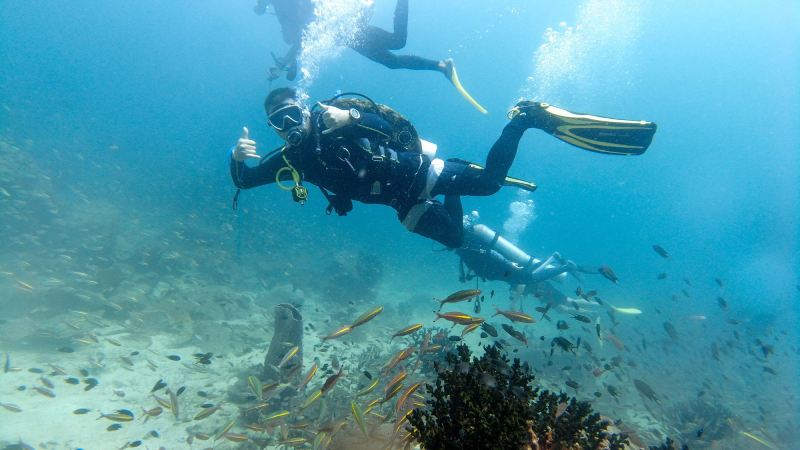
Instead, the government implemented a Movement Control Order (MCO) and all but essential economic activity ceased.
Having occupied himself by reading, running on the beach and, whenever possible, scuba diving, Yu doesn’t regret his decision to stick around. “I think I’d go crazy if I had to go through 21 days of quarantine,” he says.
Yu says he’s spent a lot of the pandemic underwater.
“This is the time to do it. Business is bad everywhere; I recently saw a strip of Chinese restaurants in Kuala Lumpur that have closed down as there are simply no customers. The best thing you can do is practise a skill, study something.”
Yu passed his PADI certifications one by one and is now a qualified divemaster. Currently in the Malaysian capital and fully vaccinated, he says life is “relatively normal”, although the Omicron variant has the whole region on standby.
Does he plan to return to China for the Lunar New Year?
“Flights are incredibly expensive, if you can get a ticket at all. I miss my family but I can call them — technology makes video conferencing pretty easy. And I don’t know what I’d do there; Sichuan is landlocked and I hear the diving off Hainan Island isn’t that good.
“I can no longer bear big city life. I’m on my way to go diving off Tiomen Island [off the east coast of Peninsular Malaysia]. The water is super clear there.”



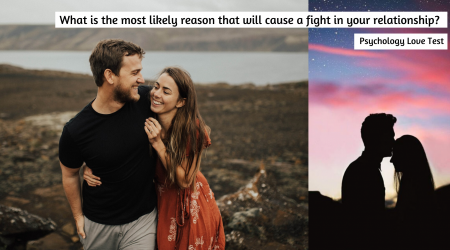








Leave a Reply